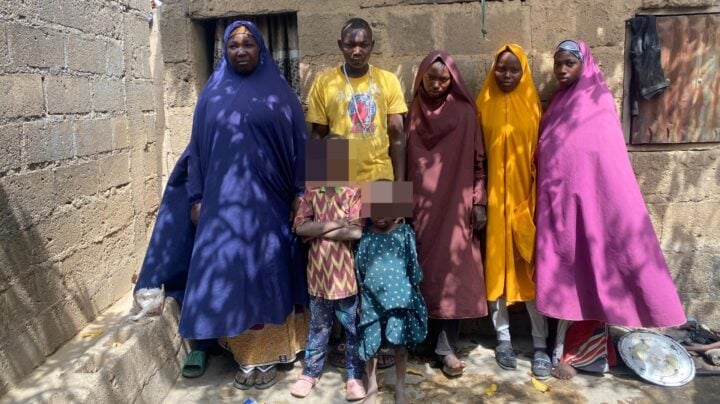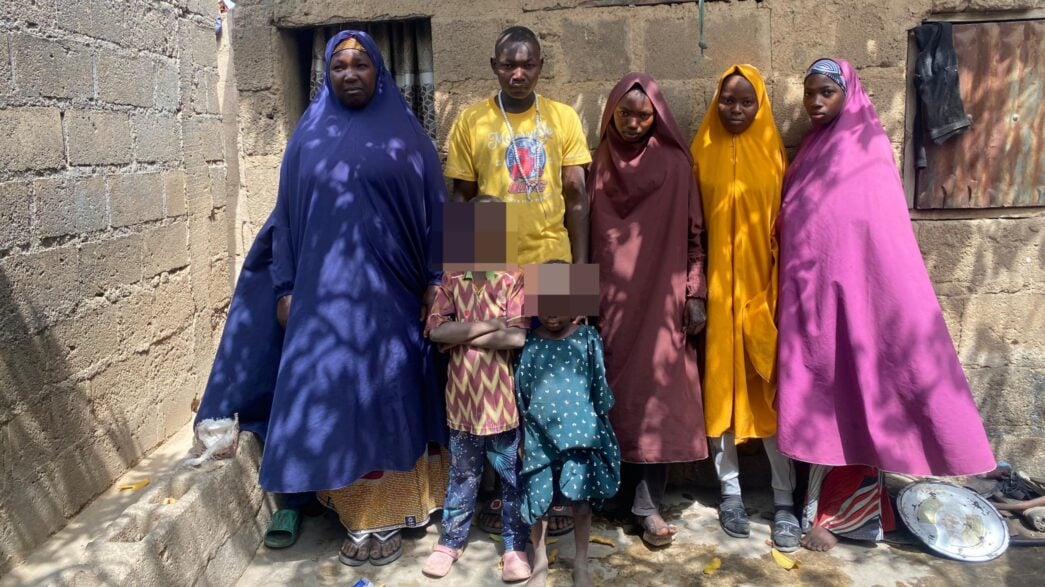Barat Abdullahi with some of her children
Aisha, in her long purple hijab, walked briskly into the dimly lit office in Sharada Primary Healthcare Centre and settled into a chair. Her baby snugly in arms, the woman’s face showed little to no signs of weariness despite the heat and dry air in Kano.
“Ina kwana. Yes, I’m using family planning,” she said with a smile when questioned, her voice sharp and lively.
But accessing birth control was not a walk in the park for the 35-year-old, who had now experienced childbirth nine times. Aisha, who is the last of her husband’s four wives, had heard about family planning and birth control from people around her and on the radio.
“But when I told my husband I wanted to get birth control, he said no. He said he had heard many bad things about it, that I would be bleeding non-stop and that I would lose a lot of weight,” she said.
Advertisement
Six children later, Aisha was tired. She explained that it did not help matters that she was “very fertile”.
“People were always making fun of me because I was always pregnant and asking me why I was always pregnant. They didn’t know it was because my husband does not want a contraceptive method,” she said.
After giving birth to her seventh child, she decided to take matters into her own hands.
Advertisement
“So, I went and got the IUD method, but I did not inform my husband,” she said.
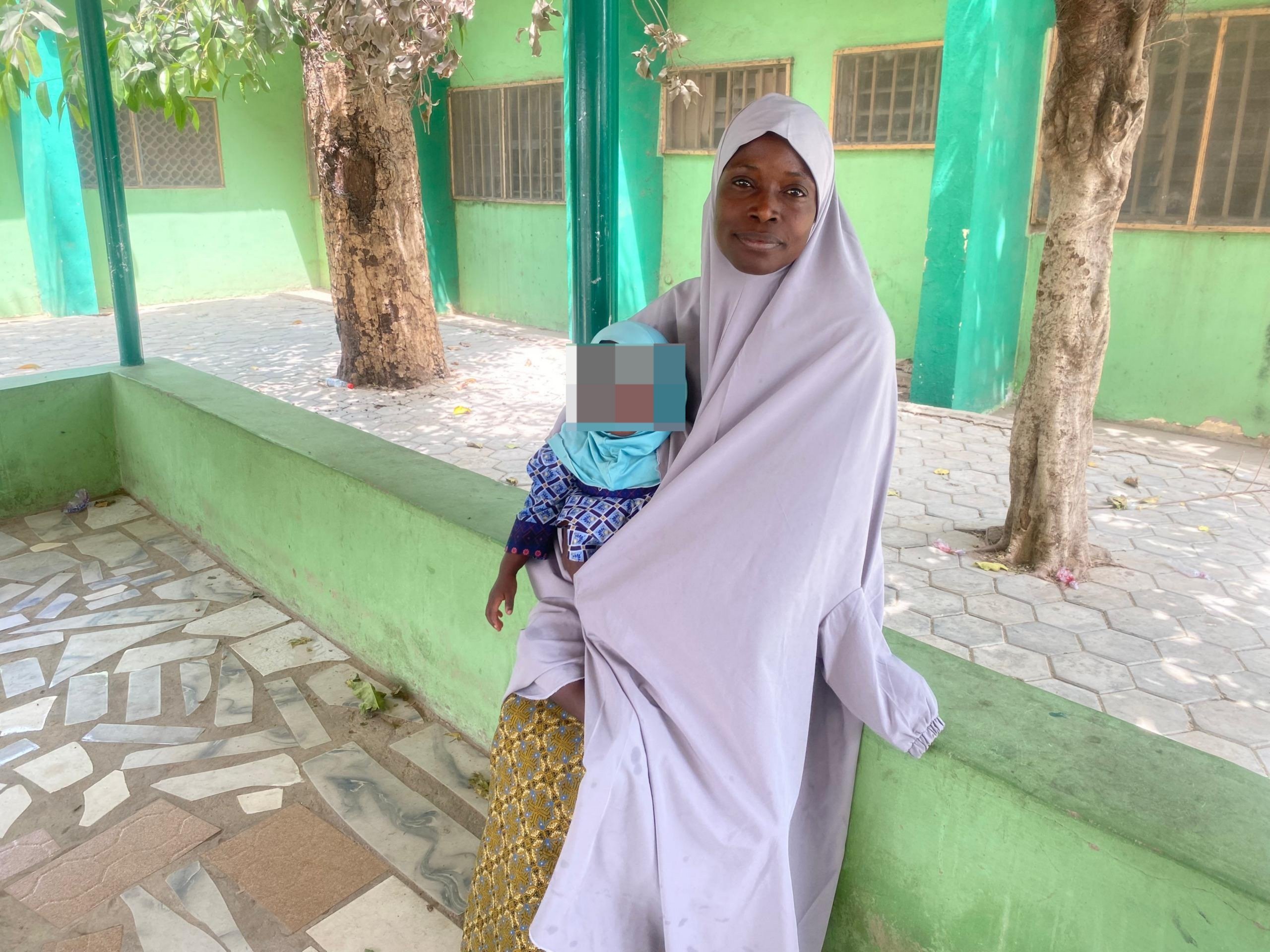
She removed the IUD after two and a half years and got pregnant with her eighth child. However, the child died shortly after birth. Months later, she became pregnant again.
Aisha adjusted her sitting position as she began to talk about the loss she had experienced. Her sixth and seventh children died at birth due to health complications.
“After this baby, I told my husband I want to go and get birth control, and he still refused,” she said.
Advertisement
But determined, Aisha went ahead and got the IUD at the Sharada PHC, one of the health centres supported by MSI Nigeria Reproductive Choices to provide family planning services to women within and around the community.
“But my husband was always fighting me for getting the IUD and stopped sleeping with me for a while. We still fight on occasion, but I don’t bother about it.”
Taking care of her six surviving children has been difficult financially. Aisha said she often has to neglect her own needs to accommodate theirs.
“It is more difficult because I am not the only wife, and my husband has more children from the other wives, too. It is really hard,” she said.
Advertisement
WEIGHED DOWN BY MISCONCEPTIONS
Aisha’s story is echoed in many other homes across northern Nigeria.
Miles away in the Tassa community, Dawakin Kudu LGA, another woman, Barat Abdullahi, who sat under a tree making food for her family, faced a different but equally daunting setback in accessing family planning services.
Advertisement
Before her marriage to her husband, Barat never considered how many children she wanted to have or even heard of modern contraceptive methods. It was not until after she already had several children that she learned about family planning. But along with the new information came misconceptions and social norms.
The bubbly and smiling woman said she was told that if a woman uses birth control and dies, “God would punish her for stopping the children from being sent”. This common religious misconception in her community scared her away from the idea of family planning.
Advertisement
But after giving birth to her eleventh child, she suffered severe health complications. She had never given birth in a hospital before, but this time, she had to because of the complications.
Unfortunately, the child did not survive.
Advertisement
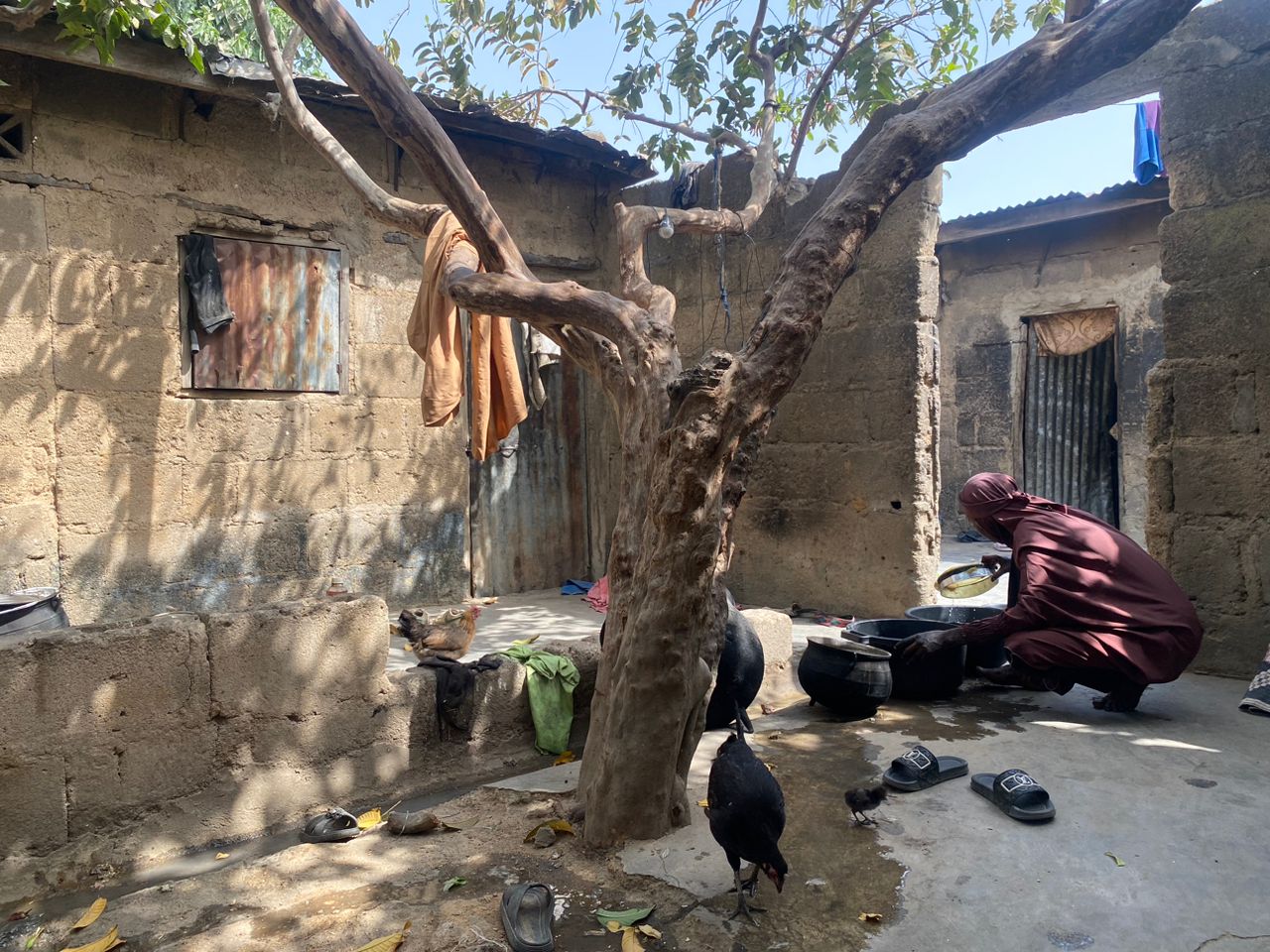
“All my other children were born at home, but I had to go to the hospital because of the complications. My body swelled up a lot, and fluid was coming out of me. After I gave birth, the child died,” she said.
Barat said the nurse who took care of her suggested she adopt a family planning method. After some counselling and reassurance from the health worker, she decided to get an implant, a long-acting reversible contraceptive (LARC) method inserted in the upper arm of a woman. It can offer protection against unplanned pregnancy for up to three years.
Barat, whose first child is now married and has six children of her own, said that having so many children has created a lot of difficulties for her, “especially because one of my children is mentally challenged”.
“I spent so much money until I had nothing left. Having this many children has never been easy for me. We are really just managing. I usually feed my children guinea corn over and over,” she said.
“Sometimes, I give them out of the food I sell, but it is usually only guinea corn I can give them. Sometimes, there will be no food. My husband has another wife and other children. My husband supports, but he is not capable most times.”
Asked if she has educated her married daughter about family planning, she answered in the affirmative but said the daughter is unable to do it “until her husband approves”.
BARRIERS TO FAMILY PLANNING FOR WOMEN
According to the World Health Organisation (WHO), family planning is the ability of individuals and couples to have their desired number of children, which includes the spacing and timing of births and a woman’s right to decide if she wants to have children or not.
The WHO said ensuring individuals get access to their preferred contraceptive method advances several human rights, including the right to life and liberty, freedom of opinion, expression and choice and the right to work and education.
It also provides a range of health benefits, such as preventing pregnancy-related health risks for women.
There are many different types of contraception — oral contraceptive pills, implants, injectables, patches, vaginal rings, intrauterine devices (IUD), condoms, vasectomy, tubal ligation, lactational amenorrhea methods, withdrawal and fertility awareness-based methods.
But not all types are suitable for all situations and persons.
The global health body said the most appropriate method of birth control depends on an individual’s overall health, age, frequency of sexual activity, number of sexual partners, desire to have children in the future, and family history of certain diseases.
However, as of 2021, among the 1.9 billion women of reproductive age group (15–49 years) worldwide, 874 out of the 1.1 billion who had a need for family planning used modern contraceptive methods.
About 164 million had an unmet need for contraception.
In Nigeria, barriers to women accessing birth control and family planning are multifaceted and deeply ingrained.
According to the Nigeria Demographic and Health Survey for 2023 to 2024, the contraceptive prevalence rate (CPR) is 20 percent among currently married women and 50 percent among sexually active unmarried women. The report added that only 15 percent of currently married women and 38 percent of sexually active unmarried women use a modern contraception method.
Among currently married women, the most commonly used contraceptive methods are implants (6 percent) and injectables (4 percent); while for sexually active unmarried women, the most commonly used contraceptive methods are male condoms (26 percent) and withdrawal (9 percent).
Several factors contribute to these low figures, including limited access to accurate information, fear of side effects, social and religious norms, and inadequate access to quality healthcare services.
Studies have identified factors at the individual, household, and societal levels that affect contraceptive use. For instance, household structure and composition can influence contraceptive use, with women from polygynous households being less likely to use contraceptives.
Women’s autonomy and decision-making power within the household also play a significant role in determining their access to family planning services.
FAMILY PLANNING AND POVERTY
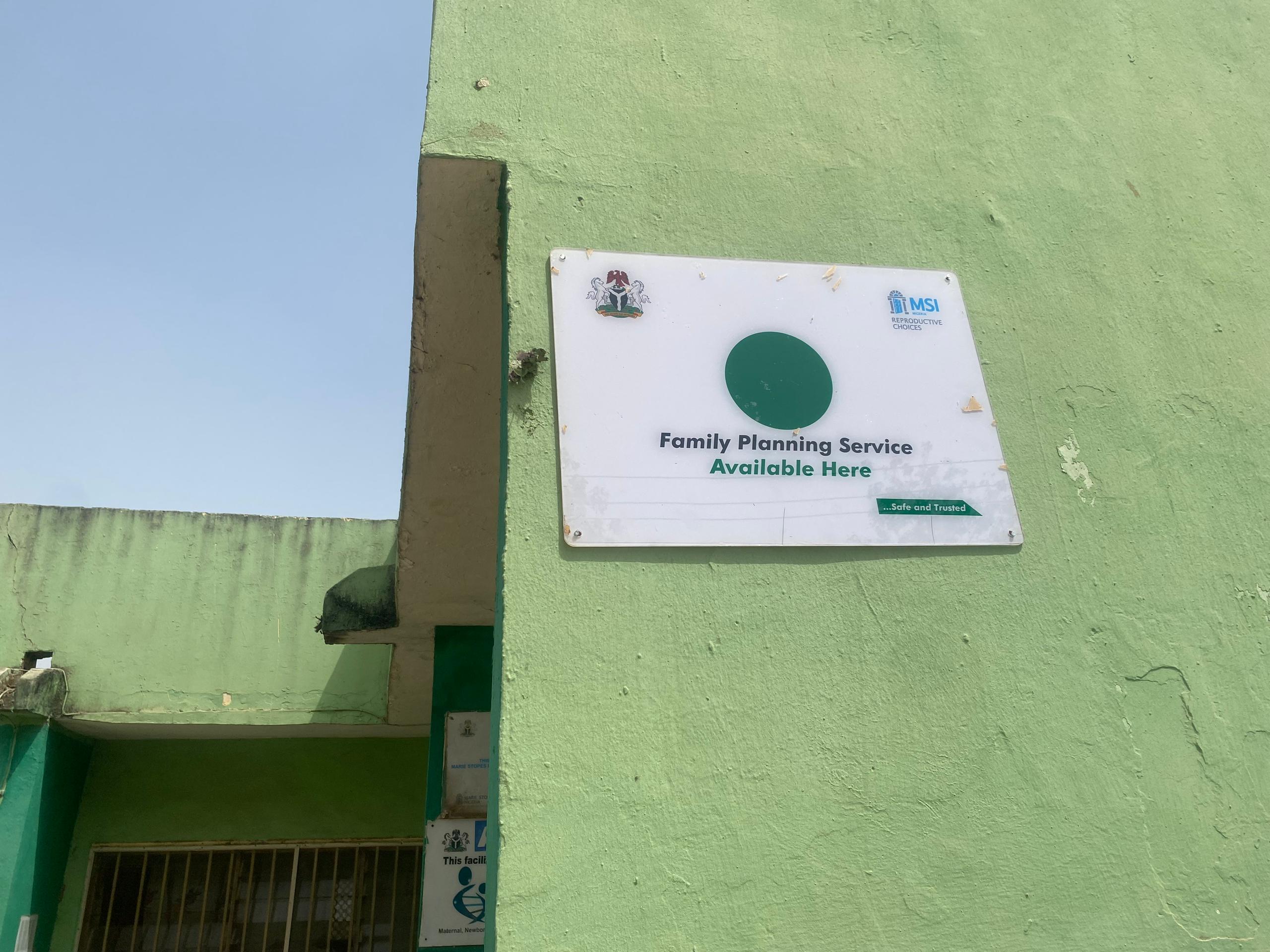
The lack of access to family planning services has far-reaching consequences, including perpetuating the cycle of poverty.
When women are unable to plan their families, they are more likely to have unintended pregnancies, which can lead to increased economic burdens on households.
A study by the Guttmacher Institute found that in developing regions, the average annual cost of unintended pregnancies is estimated to be around $1.1 billion. This financial strain can push families further into poverty.
Research has also shown that children born into families with limited resources are more likely to experience poor health outcomes, receive inadequate education, and face limited economic opportunities.
This perpetuates the intergenerational transmission of poverty, making it increasingly difficult for families to break free from the cycle of poverty.
In Nigeria, for example, the average family size is around 5.3 children per woman, which can put a significant strain on household resources.
‘I NEED MY HUSBAND’S PERMISSION’
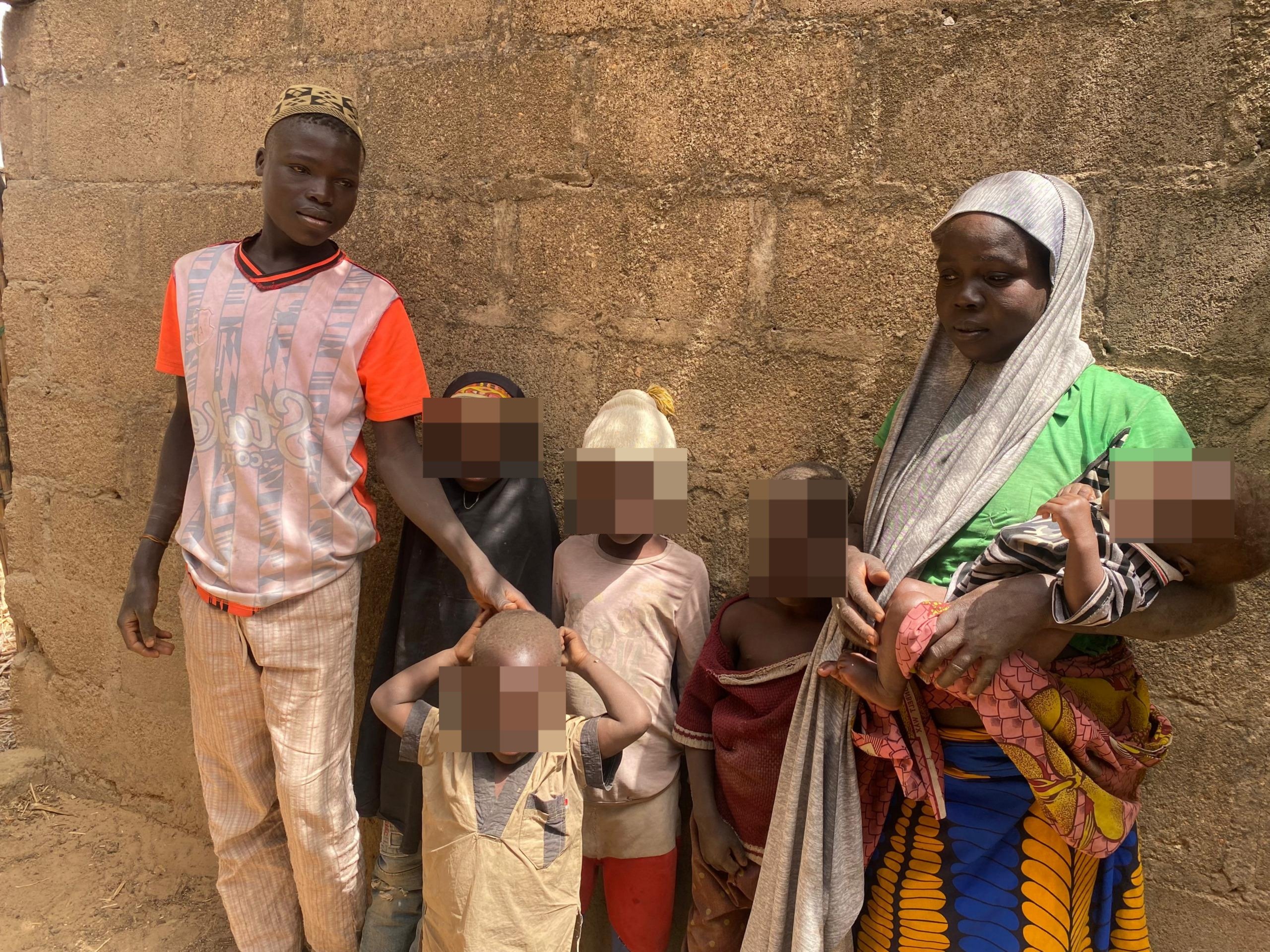
Due to social and religious norms in most parts of society, the decision-making powers about contraceptive methods lie with the husbands and relations of the woman.
When such decisions are taken in mischief through reproductive coercion behaviours like birth control sabotage, it leads to undesired consequences and confusion for the woman in need of a family planning service.
Kadija Hamza is one such woman.
Kadija stood expressionless in front of her semi-completed cement house, her dusty hands holding her four-month-old baby as she spoke about her experiences with family planning.
Kadija said that despite being on what she believed to be a contraceptive pill, she has continued to fall pregnant.
“I’ve been using family planning, but it’s not working. I still get pregnant within short periods. In three years, I’ve given birth to two children,” she said.
Her eyes drifted to two of her small children playing roughly in front of the house as she quickly snapped at them in Hausa.
Kadija had given birth twelve times, losing two children – one after a year and the other after nine months. When asked about their deaths, she shrugged and let out a bitter laugh, perhaps to mask her pain.
“They were not sick. It was just God’s will for them to die,” she said.
The pill, which Hamza is supposed to take weekly, is procured only by her husband.
But suspiciously, according to Hamza, she “always falls asleep” after taking the medication.
When asked if she could get the pills herself to be sure of the authenticity, Hamza explained that it would be impossible as “she needs her husband’s consent” to take the pills.
The decision to seek family planning had become necessary due to Hamza’s poor health in pregnancy. She had suffered blood loss and received donations as a result.
The strain of raising a large family has taken a toll on Hamza, who has no source of livelihood except to take care of her domestic animals.
“We don’t always have food to eat,” she said. “And I have faced a lot of hardship.”
‘ADVOCACY MUST BE STRATEGIC IN IMPROVING ACCESS TO FAMILY PLANNING’
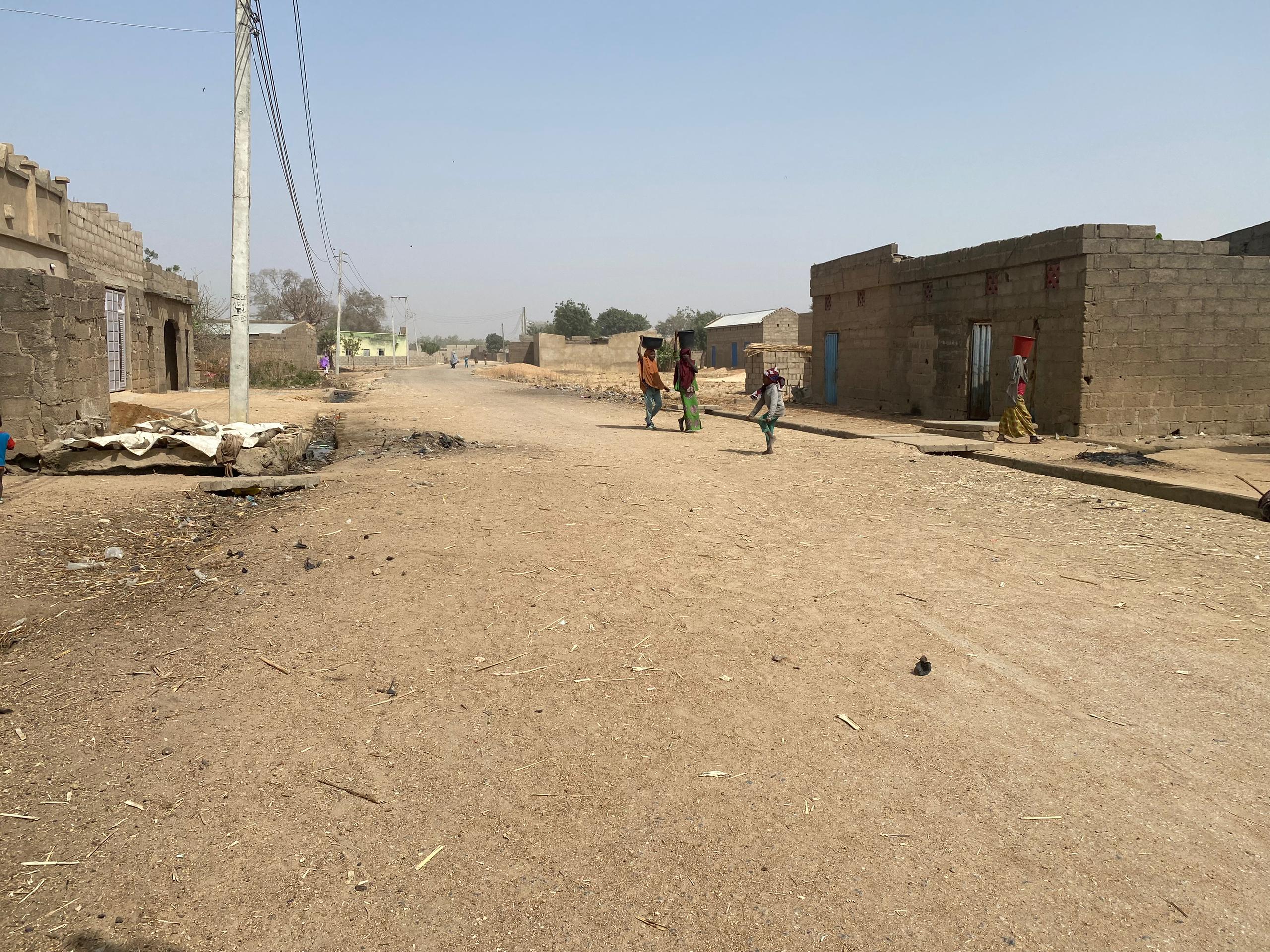
Stories of women across communities highlight not just personal struggles, but the broader cultural, social, and systemic barriers that continue to shape women’s access to family planning in Nigeria.
Recognising the broadness of these issues, Ejike Oji, chairman of the management committee, Association for the Advancement of Family Planning (AAFP), said “strategic advocacy” that speaks the language of the people and their leaders is needed to improve access to family planning services.
He said advocacy efforts must be designed with an intimate understanding of the local landscape, adding that risks and planning mitigation strategies that respond to community dynamics must be mapped out.
He added that his means of identifying gatekeepers is by working with local government leaders and community elders, rather than around them.
“If you look at the government structure there, the lowest is the family. The chairman of the local government is the highest government person in that community, followed by the councillor,” he said.
“We need to, first of all, advocate to those people and use them before we go into the communities. Otherwise, it’s useless.”
Oji said that beyond engagement with power structures, cultural, religious, and even media pathways must be tactfully used to break down resistance and myths around family planning.
“You also have to talk to the humans themselves. You have to understand the religious community and what the consequences are,” he said.
The chairman also said an absence of family planning can have negative economic repercussions on the family and community as a whole.
“If you don’t have a good income, if you have one or two children, then that income might be enough. Whereas if you have one man, one woman, and ten kids, the problem will be exacerbated. There will be a lot of poverty,” he said.
He explained that the state of poverty could, in turn, lead to poor maternal nutrition, leading to anaemic mothers, which leads to undernourished children, which then results in stunted cognitive development.
“These outcomes aren’t just bad for families, they’re devastating for the entire country. The Nigerian government is struggling to provide resources for social services. The classrooms we already have are populated,” he said.
Oji said family planning isn’t only about personal choice or women’s health, but also about national survival.
MSI NIGERIA WORKING TO BREAK DOWN BARRIERS
Organisations like MSI Nigeria Reproductive Choices (MSI Nigeria) are working to break down the barriers hindering access to family planning services in Nigeria.
Abdullahi Isah, a social norms advisor at MSI Nigeria Reproductive Choices (MSI Nigeria) in Kano, acknowledged the misconceptions and social norms surrounding family planning.
“We have misconceptions, and we have religious and social norms that affect the uptake of contraceptive methods. We identify them across communities where we operate and adopt suitable approaches to address them,” he said.
MSI Nigeria was first established in Nigeria in 2009 at the invitation of the federal government through the federal ministry of health. In collaboration with the governments at the federal, state and local levels, it has now become one of the leading providers of modern contraceptive methods across communities in the 36 states of Nigeria and the FCT.
MSI Nigeria reaches its mission in Nigeria through various approaches, which include public sector strengthening, mobile outreaches, MS ladies service providers, toll-free contact centre (22252) and 6 medical centres spread across Nigeria.
Isah said in the organisation’s work to make family planning widely accessible, there is a high level of collaboration with state governments, traditional and religious leaders.
He noted that religious leaders play a crucial role in promoting family planning, particularly in Muslim-dominated communities in Kano.
Isah highlighted the organisation’s partnerships with various groups, including the Christian Association of Nigeria, the Jama’atu Nasril Islam (JNI), the Federation of Muslim Women of Nigeria (FOMWAN) and the Women Wing of the Christian Association of Nigeria (WOWICAN), amongst others.
These partners, Isah explained, are aware of the negative social norms and misconceptions surrounding family planning and their impact on the uptake of products and services among their followers.
“They are the ones who organise workshops to sensitise the people, and they know what to say. They are aware of all these negative social norms, misconceptions, myths, and rumours associated with childbirth spacing or family planning in the community,” he said.
“We know them, we map them out. Like Sheikh Baradwala, we see most of the youth prefer to go to him because of his leniency. Like Ibrahim Kalil of Kano state, he is very lenient. He is the chief of the imams here in Kano.”
According to Isah, one of the major challenges is negative social norms.
“We have the perception that a woman cannot do anything without the prior approval of the man,” he explained.
“Also, there’s the stigma associated with accessing family planning services. Many women are afraid to seek out these services due to fear of judgement or rejection by their communities.
“This is why MSI Nigeria has a network of community-based demand generation teams that provide quality reproductive health awareness and information dissemination to address those myths while empowering women with knowledge to make informed choices.”
The social norms advisor also noted some of their field observations about limiting factors against the uptake of family planning services in rural areas.
“Many women want to access these services, but they can’t due to distance or lack of transportation,” he said.
“We observed a lot of women who are interested in family planning, but could not afford basic transportation costs to the nearest service delivery points.”
He said the MSI Nigeria mobile outreach teams go deep into rural areas to provide family planning services, while the trained service providers, called the mobile MS Ladies, provide door-to-door services to women who may not be able to access service delivery points for some reasons.
He said MSI Nigeria also supports the public facilities in various local government areas in Nigeria.
“We have a channel called public sector strengthening, which builds the capacity of healthcare providers to provide high-quality family planning services and strengthens the healthcare system. Our support to the government is based on joint identification of areas of need, in policies or technical support,” Isah explained.
This report was supported by MSI Nigeria Reproductive Choices.
